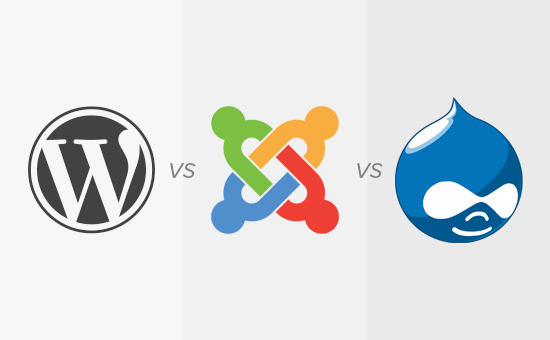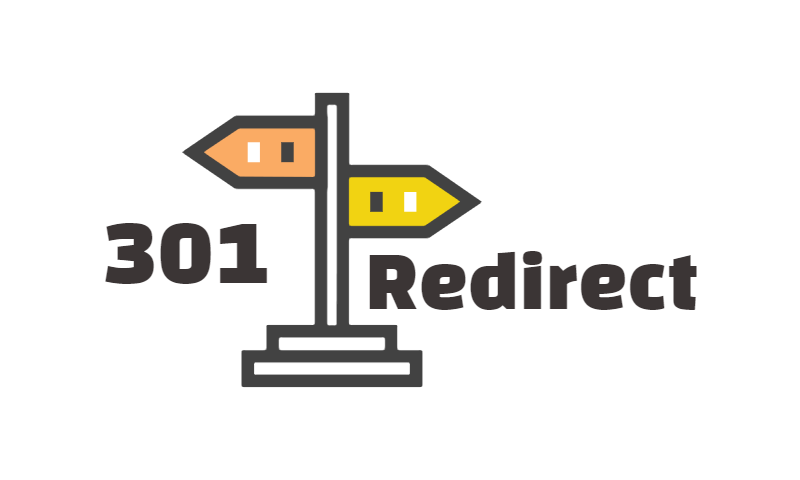Driven by the digital wave, content management systems (CMS) have become a core tool for businesses, individuals and organizations to build websites. Compared with traditional closed-source software, open-source CMS has become the first choice for website building due to its flexibility, cost advantage and large community ecology. And among the many open source CMSWordPress,Drupal and Joomla Undoubtedly the most influential "Big Three".

First, the overall development trend of open source CMS
1. The Rise of Headless CMS (CMS)
With the front-end framework (ReactThe rise of traditional CMS (Vue, Next.js), traditional CMS is gradually to the "Headless CMS" transition. In the next decade, open source CMS must support API-driven architecture to realize the separation of front and back ends and meet the demand for cross-platform content distribution.
![Image [2]-The future of open source CMS: WordPress, Drupal and Joomla who can lead the next decade?](http://gqxi.cn/wp-content/uploads/2025/09/20250928114109528-image.png)
2. Deep integration of AI and automation
Artificial Intelligence is reshaping CMS: from content recommendation, SEO optimization to automated layout, AI will make open source CMS smarter. In the future, CMS is not only a "management tool", but also a "smart assistant".
3. Continuing challenges to security and privacy
Open source CMS have always been a key target for hackers. In the next decade, security plug-ins, privacy protection, compliance (such as GDPRThe CCPA will be an indispensable competency for CMS.
![Image [3]-The Future of Open Source CMS: WordPress, Drupal, and Joomla Who Will Lead the Next Decade?](http://gqxi.cn/wp-content/uploads/2025/09/20250928114141296-image.png)
4. Globalization and multilingual support
With the development of cross-border e-commerce and globalized business, a CMS that supports multiple languages, currencies and time zones will be increasingly important.
The future development direction of WordPress
1. Market position
WordPress currently accounts for more than 40%'s website market share, which is absolutely dominant in blogging, e-commerce, and SMB websites.
2. Strengths
- Large ecosystems: Millions of plugins & themes.
- low user threshold: No programming skills are required to get started quickly.
- WooCommerce supports e-commerce: Steady increase in e-commerce market share.
3. Challenges and opportunities
- challenge: Performance optimization, variable plug-in quality, and frequent security issues.
- favorable circumstance: With the help of Gutenberg Editor + Headless CMS + AI IntegrationWordPress is expected to further consolidate its dominance in the future.
![Image [4]-The Future of Open Source CMS: WordPress, Drupal, and Joomla Who Will Lead the Next Decade?](http://gqxi.cn/wp-content/uploads/2025/09/20250928114227243-image.png)
Drupal's future development direction
1. Market orientation
Drupal has always been Enterprise-level websites, government organizations, educational platforms The preferred choice. It is known for its great flexibility and scalability, but has a steep learning curve.
2. Strengths
- Extremely high security: Used extensively by government agencies and NGOs.
- Highly scalable: Suitable for high-traffic, large-scale content management.
- Support for complex workflows: Unmatched in content approval, multi-user management.
3. Challenges and opportunities
- challenge: The user base is not as broad as WordPress and the community is relatively niche.
- favorable circumstanceDrupal has a natural advantage in Headless CMS and API-driven architectures, and is expected to further dominate in the next decade. High-end enterprise marketThe
![Image [5]-The Future of Open Source CMS: WordPress, Drupal, and Joomla Who Will Lead the Next Decade?](http://gqxi.cn/wp-content/uploads/2025/09/20250928114303119-image.png)
Fourth, the future development direction of Joomla
1. Market orientation
Joomla used to be the second largest open source CMS after WordPress, but has lost market share in recent years. However, it still has a stable community of supporters.
2. Strengths
- Flexible Architecture: Better for developer customization than WordPress.
- Multi-language support built-in: No additional plug-ins required.
- intermediate position: It's neither as complex as Drupal nor as "dumbed down" as WordPress.
3. Challenges and opportunities
- challenge: Shrinking ecosystems and sluggish new user growth.
- favorable circumstance: It would be nice to have the help of Modernized Front-End Framework + SaaS-based Services(math.) genusJoomla It is still possible to regain traction in the developer community.
![Image [6] - The future of open source CMS: WordPress, Drupal and Joomla who can lead the next decade?](http://gqxi.cn/wp-content/uploads/2025/09/20250928114420575-image.png)
V. Comparison of the Three and Forecast of Future Patterns
| dimension (math.) | WordPress | Drupal | Joomla |
|---|---|---|---|
| market share | Maximum (40%+) | Niche (around 2%) | Sliding (~3%) |
| learning curve | simpler | harder | moderate |
| community ecology | greatest | professionalization | Stable but shrinking |
| Applicable Scenarios | Blogging, e-commerce, SMEs | Government, big business, education | Small and medium-sized enterprises, community-based websites |
| future potential | Continued dominance | The Rise of the Enterprise Sector | If you can innovate, you still have a chance |
VI. Possible patterns for the next decade
- WordPress continues to lead the way
With its ecosystem and user base, WordPress will remain a dominant player in the SMB and personal markets. - Drupal addresses the high end of the market
In terms of security, scalability, Drupal will be the Enterprise, Government, Education The site's first choice. - Joomla needs to find differentiation to survive
If it can't innovate fast enough, Joomla may be further marginalized. However, if it can be used in Multi-language, developer customization Finding a breakthrough on still has a chance to buck the trend.
concluding remarks
The next decade of open source CMS will be "Popularity + Specialization + Intelligence" Parallel times.
- WordPress remains the widest choice, meeting the needs of the vast majority of websites around the world.
- Drupal will occupy an increasingly important position in the enterprise market.
- Joomla The future of the company is full of uncertainty, but it may also find new opportunities in niche markets.
Regardless of who ends up leading the next decade, one thing is certain:Open source CMS will remain a core force in the Internet worldThe
Link to this article:http://gqxi.cn/en/77881The article is copyrighted and must be reproduced with attribution.






















![Emoji[jingya]-Photonflux.com | Professional WordPress repair service, worldwide, rapid response](http://gqxi.cn/wp-content/themes/zibll/img/smilies/jingya.gif)






No comments